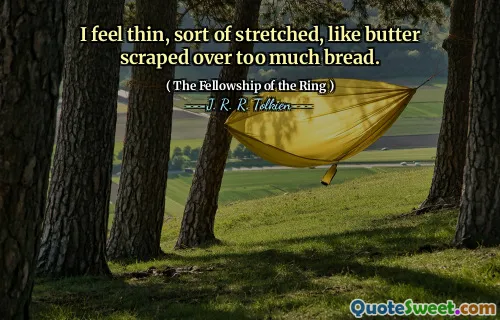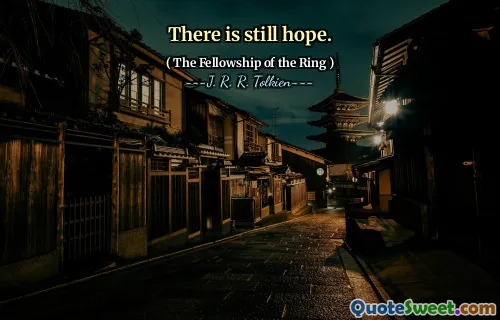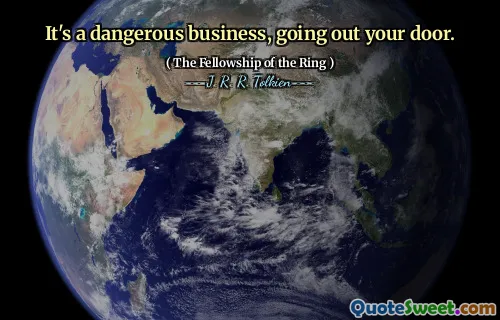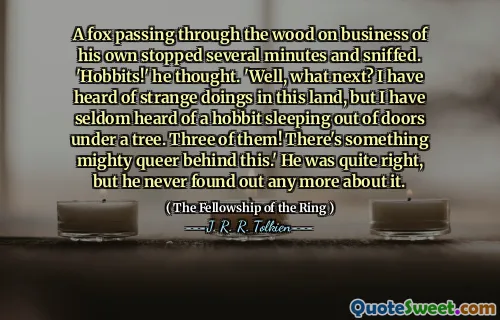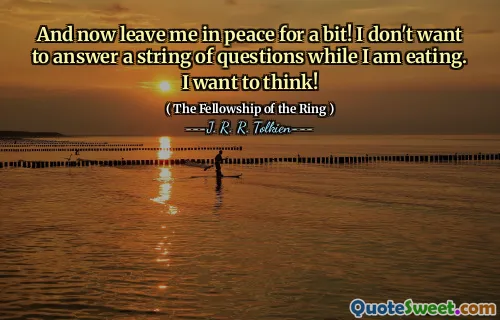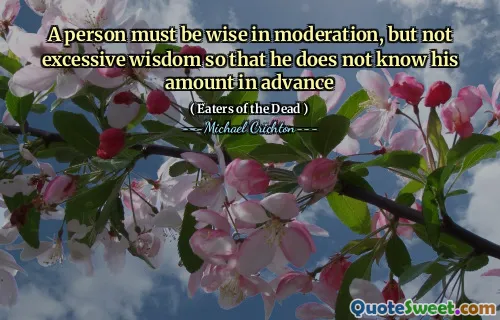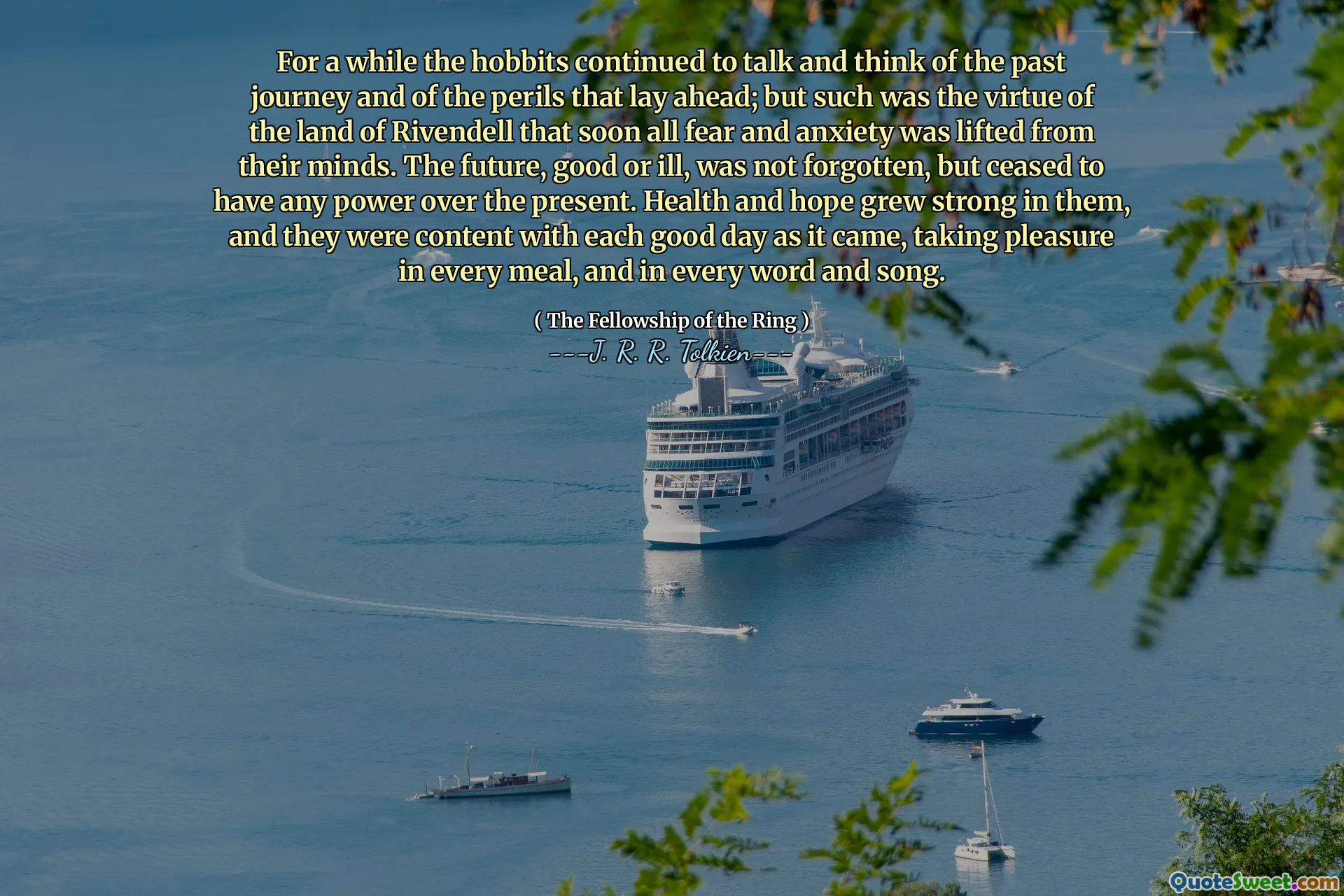
For a while the hobbits continued to talk and think of the past journey and of the perils that lay ahead; but such was the virtue of the land of Rivendell that soon all fear and anxiety was lifted from their minds. The future, good or ill, was not forgotten, but ceased to have any power over the present. Health and hope grew strong in them, and they were content with each good day as it came, taking pleasure in every meal, and in every word and song.
This passage from Tolkien's 'The Fellowship of the Ring' offers a profound meditation on the importance of living in the present moment. The hobbits, burdened by memories of their past hardships and anxieties about future dangers, find solace in Rivendell, a land symbolic of peace and refuge. The land's virtue is depicted as having the power to lift their fears, shifting their focus from worries about what was or what might be to appreciating the here and now. This shift emphasizes the notion that many of our anxieties are rooted in dwelling too much on past regrets or future uncertainties, preventing us from fully experiencing the current moment.
The hobbits' newfound contentment—taking pleasure in simple joys like meals, words, and songs—serves as a reminder that happiness often resides in appreciating the small, everyday blessings. The idea that mental and emotional well-being can be restored when we focus on the present aligns with many philosophical and psychological teachings that advocate mindfulness. In a world where future concerns frequently dominate our thoughts, this passage invites reflection on the value of pausing, grounding ourselves, and finding strength and hope within the current moment. It also underscores hope’s transformative power—an optimistic outlook can restore health and hope, even amid dark times.
Overall, Tolkien eloquently captures the essence of mindfulness and resilience, encouraging us to cherish each moment and find peace amidst life's inevitable uncertainties and challenges.
